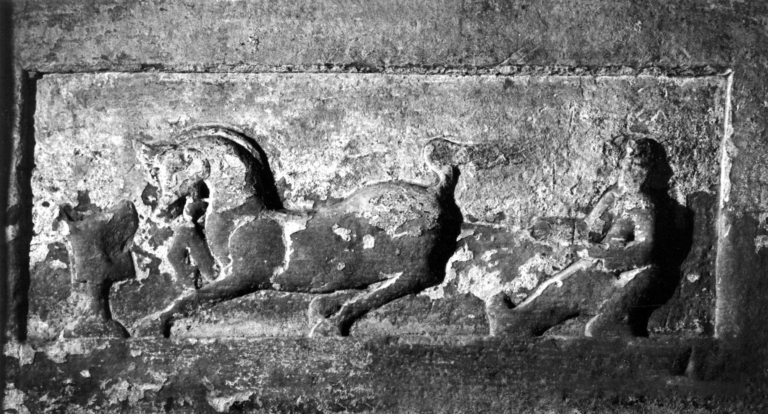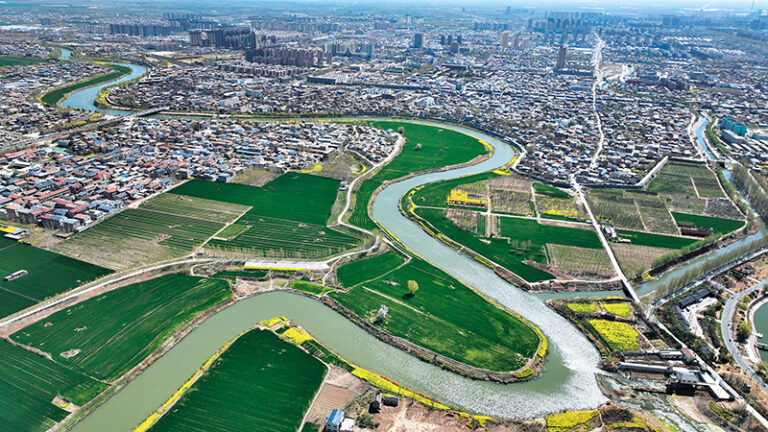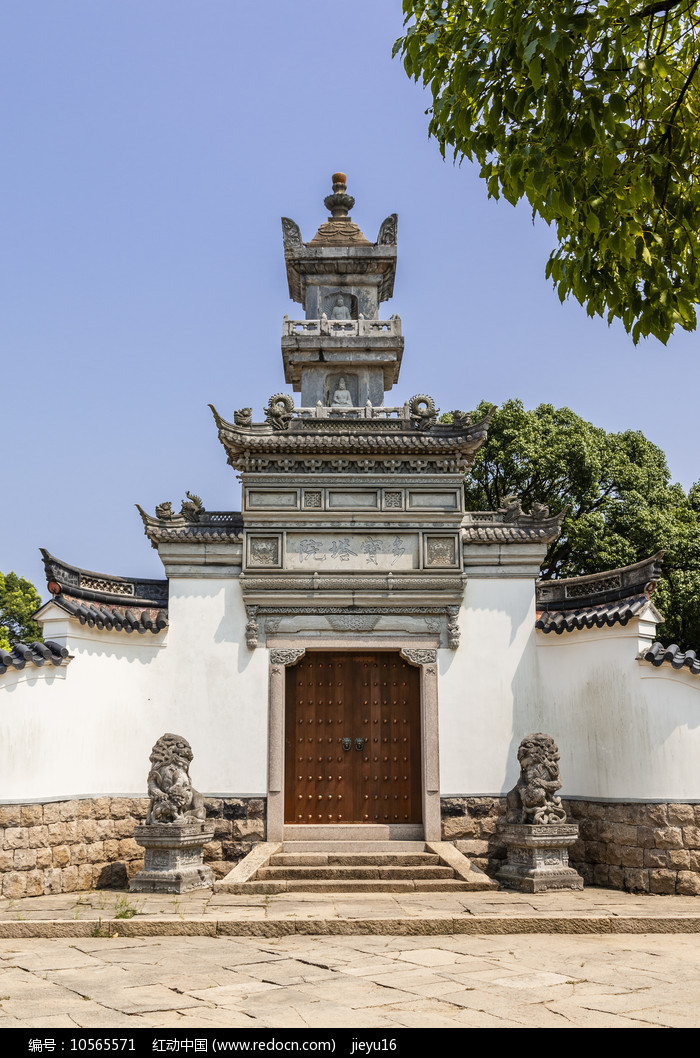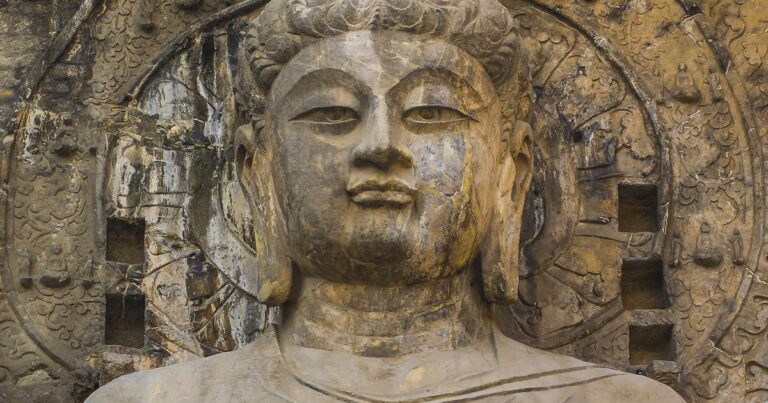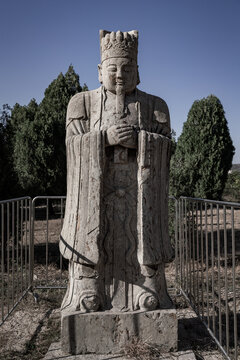Exploring Pingdingshan Yingguomudi: Your Ultimate Guide to Nature and Culture
An Essential Guide to Visiting Pingdingshan Yingguomudi
In This Guide
- An Essential Guide to Visiting Pingdingshan Yingguomudi
- The Rich History of Pingdingshan Yingguomudi
- Main Highlights: What to See at Pingdingshan Yingguomudi
- Planning Your Visit: A Practical Guide
- Tickets, Hours, and Booking
- How to Get There
- Local Cuisine and Accommodation
- Frequently Asked Questions
- Final Thoughts on Your Trip
Nestled in the scenic region of Pingdingshan, Henan Province, the Yingguomudi, or Ying State Cemetery, offers a fascinating glimpse into China’s ancient past. This archaeological site, steeped in history, serves as the final resting place for the nobility of the Ying State, a vassal kingdom of the Zhou Dynasty. Dating back to the early Western Zhou period, the cemetery is renowned for its meticulously arranged tombs, which present a unique opportunity to explore the funerary practices and social structures of ancient Chinese aristocracy.
Discovered in 1979, the site gained national significance due to the remarkable artifacts unearthed over several decades of excavation. Among the thousands of relics are exquisite bronze vessels and jade artifacts, each telling a story of ritual significance and cultural heritage. The inscriptions found on these bronzes provide invaluable insights into the ceremonial practices and governance of the time, enriching our understanding of the Zhou Dynasty’s influence on subsequent Chinese history.
Visitors to Yingguomudi can wander through the serene landscape of Taiyang Ridge, where the tombs are located, and imagine the lives of the elite buried there. The site not only captivates history enthusiasts but also offers a peaceful retreat for those seeking to connect with the echoes of a bygone era. Open daily from 7:30 AM to 6:00 PM, the Ying State Cemetery is a must-visit destination for anyone interested in the rich tapestries of Chinese civilization.
The Rich History of Pingdingshan Yingguomudi
Pingdingshan Yingguomudi, located in the tranquil region of Xinhua District in Pingdingshan, Henan Province, is a historical site that offers a glimpse into ancient Chinese civilization. The cemetery primarily served as the burial ground for the nobility of the Ying state during the Western Zhou Dynasty (1046–771 BC). This site also includes tombs from the post-Ying period, belonging to nobles of the Chu state, as well as some civilian graves from the Han Dynasty.
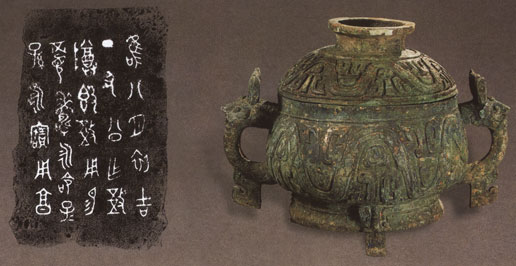
Pingdingshan Yingguomudi.
The discovery of Yingguomudi is closely tied to a fortuitous event in 1979 when a local brick factory unearthed a bronze gui (a ceremonial vessel) while digging for clay. This artifact, later identified to be a dowry item for a princess of the Deng state marrying into the Ying state, catalyzed archaeological interest in the area. Subsequent excavations revealed a wealth of artifacts and tombs, providing significant insights into the culture and rituals of the time.
Over the years, extensive archaeological work has been conducted at Yingguomudi, particularly between 1986 and 1997, resulting in the excavation of over 300 tombs, including 42 identified as belonging to the Ying state nobility. The site is characterized by the orderly arrangement of tombs, which reflects a familial burial practice known as “clan burial.” Artifacts recovered from these tombs number in the thousands, with a predominant focus on bronze and jade items. The inscriptions found on the bronze vessels are of paramount importance for the study of ancient Chinese ritual practices, governance, and societal structure.
In recognition of its historical and cultural significance, Yingguomudi was designated as a national key cultural relic protection unit by the Chinese government in 2006. This designation underscores the site’s value in understanding the intricate social hierarchies and burial customs of ancient Chinese states, particularly during a period marked by political fragmentation and the rise of regional powers.
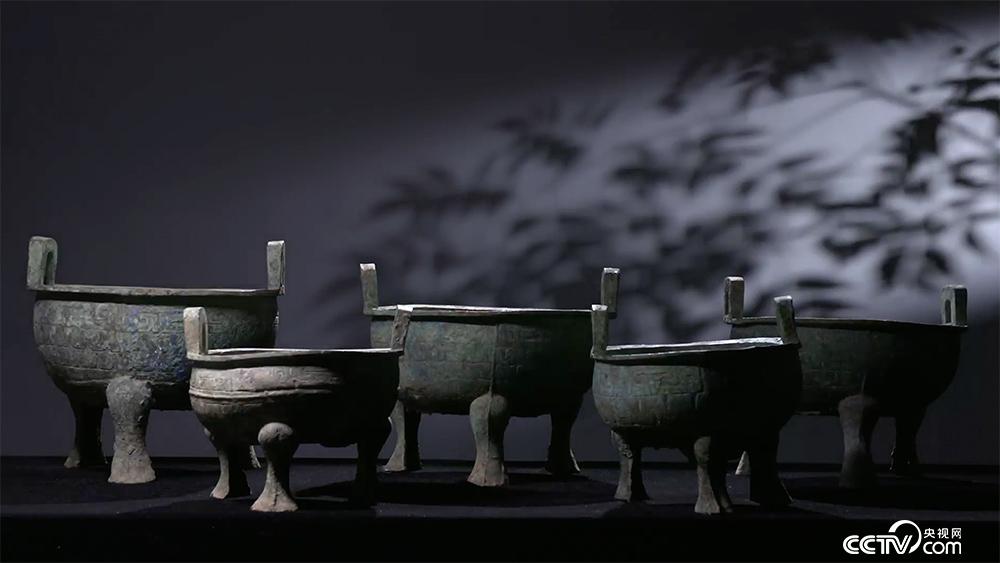
Pingdingshan Yingguomudi.
Today, visitors to Yingguomudi can explore this fascinating archaeological site, enriched by its artifacts, which serve as a testament to the sophisticated craftsmanship and ceremonial practices of the Zhou dynasty. The site not only preserves the legacies of its ancient inhabitants but also continues to be a vital resource for researchers and historians examining the dynamics of early Chinese civilization.
Main Highlights: What to See at Pingdingshan Yingguomudi
Nestled in the picturesque hills of Pingdingshan, Henan Province, the Yingguomudi (应国墓地), or Ying State Cemetery, offers a fascinating glimpse into ancient Chinese history. Recognized as a key archaeological site, this cemetery served as the burial ground for the nobility of the Ying State during the Zhou Dynasty, as well as for some nobles from the Chu State and commoners from the Han Dynasty.
One of the standout features of Yingguomudi is its impressive collection of artifacts, with thousands of items unearthed, including exquisite bronze and jade pieces. Among these artifacts, over 200 bronze items bear inscriptions that provide invaluable insights into ancient rituals and governance, such as the grand archery ceremony and burial customs. This makes the site not only a treasure trove of historical significance but also a vital resource for understanding the social and political structures of the time.
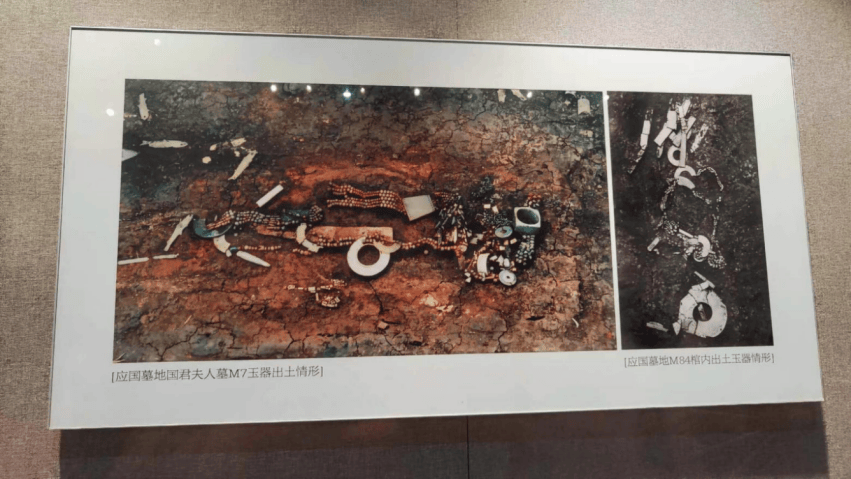
Pingdingshan Yingguomudi.
The cemetery is renowned for its orderly layout, with 42 identified Ying State tombs that exhibit a familial burial structure, highlighting the importance of lineage in ancient China. The discovery of a bronze gui (a type of ceremonial vessel) in 1979 sparked interest in the site, leading to extensive excavations that lasted over a decade. The meticulous excavation has revealed a wealth of information that has greatly contributed to the study of ancient Chinese burial practices and the history of regional states.
Visitors to Yingguomudi can enjoy a serene environment, situated on the scenic Taiyang Ridge, which offers beautiful views of the surrounding landscape, including the nearby Baigui Mountain Reservoir. The site is open to the public, allowing history enthusiasts and casual visitors alike to explore the rich cultural heritage of this ancient burial ground.
Plan your visit between 7:30 AM and 6:00 PM, and take the time to immerse yourself in the profound history encapsulated within the Ying State Cemetery. Whether you’re an archaeology aficionado or simply curious about China’s past, Yingguomudi promises an enlightening experience that is deeply rooted in the legacies of ancient Chinese civilization.
Planning Your Visit: A Practical Guide
Visiting Pingdingshan Yingguomudi (应国墓地) offers a unique glimpse into China’s rich history. Here’s everything you need to know for a smooth and enriching experience at this archaeological site.
Location and Accessibility
Yingguomudi is located in the Xinhua District of Pingdingshan City, Henan Province. Specifically, it sits atop Taiyang Ridge in Beitui Village. The site is easily accessible via public transportation, and taxis or private cars are recommended for convenience. The nearest major city is Zhengzhou, which is about a 90-minute drive away.
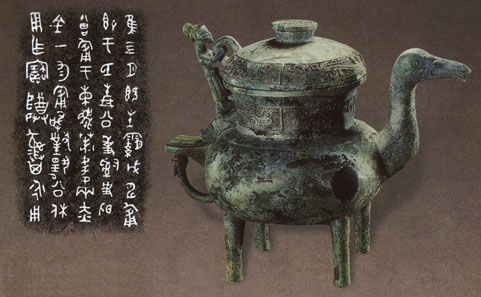
Pingdingshan Yingguomudi.
Opening Hours
Yingguomudi is open to visitors every day from 7:30 AM to 6:00 PM. It’s advisable to arrive early to avoid crowds, especially during weekends and holidays.
Duration of Visit
Plan to spend about 1 to 2 hours exploring the site. This allows ample time to appreciate the historical significance, view the excavated tombs, and examine the artifacts on display.
Admission Fees
Entry to the cemetery is generally free, but it’s wise to check in advance for any special exhibitions or guided tours that may require a fee.
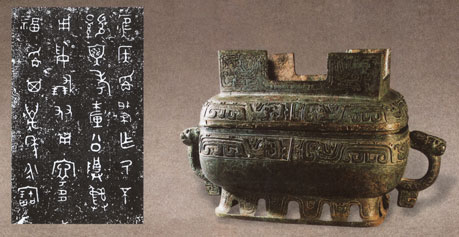
Pingdingshan Yingguomudi.
What to See
Yingguomudi is primarily a burial site for the nobility of the Ying State during the Zhou Dynasty, with significant archaeological finds including over 42 tombs and thousands of artifacts, particularly bronze and jade items. Key highlights include:
- The Tombs: Organized in a family burial pattern, these tombs provide insight into ancient burial practices.
- Artifacts: The site has yielded a plethora of relics, including bronze vessels inscribed with details about ancient rituals, which are invaluable for research on historical governance and social customs.
- Scenic Views: The cemetery is located near the Baigui Mountain Reservoir, offering picturesque surroundings and an opportunity for peaceful walks.
Tips for Visitors
- Guided Tours: Consider joining a guided tour to enhance your understanding of the site’s history and significance. Local guides can provide in-depth knowledge and stories about the artifacts and their context.
- Photography: While you can take photos of the landscape and tombs, be respectful of any restrictions regarding specific artifacts.
- Seasonal Considerations: The best time to visit is during autumn when the weather is mild and the natural scenery is particularly beautiful.
- What to Bring: Wear comfortable walking shoes and bring water, especially during warmer months. A small notebook or digital device for taking notes can be useful if you’re interested in the historical context.
Nearby Attractions
After visiting Yingguomudi, consider exploring other local attractions:
– Baigui Lake National Wetland Park (6 km away): A serene escape into nature with walking trails and bird-watching opportunities.
– Pingdingshan Museum (6 km away): Offers a broader look at the region’s history and archaeological finds.
– Xiangshan Pumen Zen Temple (7 km away): A peaceful retreat perfect for meditation and experiencing local culture.
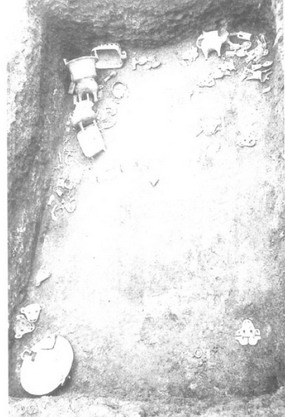
Pingdingshan Yingguomudi.
Conclusion
A visit to Pingdingshan Yingguomudi is more than just an exploration of ancient tombs; it’s an opportunity to connect with China’s rich historical tapestry. Whether you’re a history buff or simply looking for a unique cultural experience, this site promises to be a memorable stop on your travels.
Tickets, Hours, and Booking
When planning your visit to the Pingdingshan Yingguomudi (应国墓地), it’s important to be aware of the ticketing details to ensure a smooth experience.
Visitors can access the site daily from 7:30 AM to 6:00 PM. It is advisable to allocate about 1 to 2 hours for your exploration of this historical site, as it offers a rich glimpse into the burial practices of the noble families from the Zhou Dynasty and later periods.
As of now, entry to the Yingguomudi is priced affordably, with tickets generally available for around 20 RMB. This nominal fee allows you to delve into the ancient history of the site, which is renowned for its archaeological significance, including thousands of artifacts primarily consisting of bronze and jade items unearthed from the tombs.
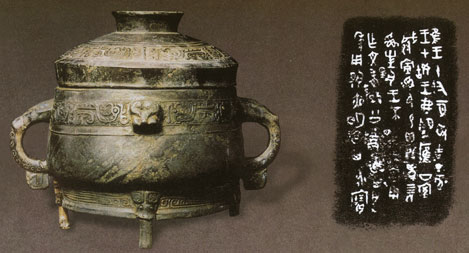
Pingdingshan Yingguomudi.
For the latest updates on ticket prices and potential discounts, consider checking local travel sites or platforms like Trip.com. Additionally, it is wise to arrive early, especially on weekends or holidays, to avoid crowds and enjoy a more serene experience amidst the historical relics.
Make sure to explore the surrounding area as well, which features other attractions like the Baigui Lake National Wetland Park and the Pingdingshan Museum, enhancing your travel itinerary in this culturally rich region of Henan Province.
How to Get There
Getting to Pingdingshan Yingguomudi (应国墓地) can be a delightful part of your travel experience, offering a chance to explore the scenic landscapes of Henan Province. Here’s how you can navigate your way to this historical site.
By Air
The nearest major airport to Pingdingshan is Zhengzhou Xinzheng International Airport (CGO), which is approximately 90 kilometers (about 56 miles) away. From the airport, you can rent a car, take a taxi, or book a shuttle service to Pingdingshan. The drive typically takes between 1.5 to 2 hours, depending on traffic.
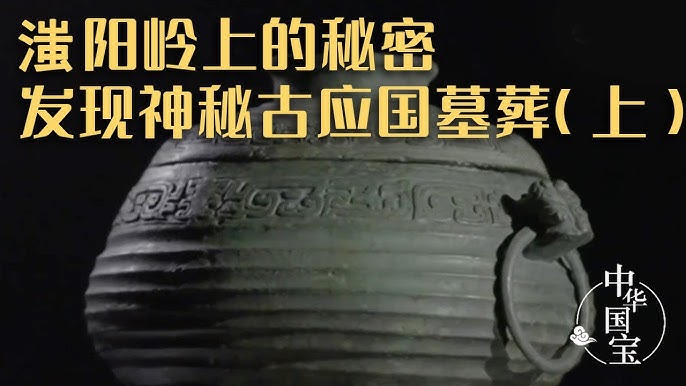
Pingdingshan Yingguomudi.
By Train
Pingdingshan is well-connected by rail, making it easy to reach from various cities in China. Key train stations include:
– Pingdingshan Railway Station: This is the main station and offers high-speed trains that connect to major cities like Beijing, Shanghai, and Xi’an.
– Pingdingshan East Railway Station: A secondary option with some regional trains.
Once at the station, you can take a taxi or local bus to Yingguomudi, which is situated in the Xinhua District, specifically in the Beituo Village area.
By Bus
Long-distance buses are another viable option. Several bus companies operate services from cities like Zhengzhou, Luoyang, and Kaifeng directly to Pingdingshan. The main bus terminal in Pingdingshan is conveniently located near the city center. From there, local transportation options like taxis or buses can take you to Yingguomudi.
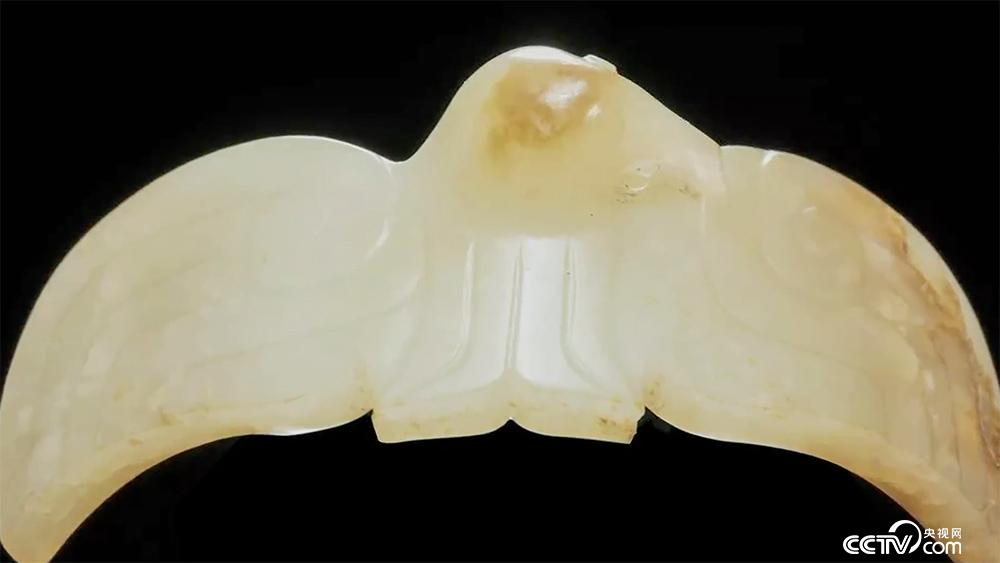
Pingdingshan Yingguomudi.
Local Transportation
Once in Pingdingshan, navigating to Yingguomudi is straightforward:
– Taxi: The most convenient way to reach Yingguomudi is by taxi. Taxis are relatively affordable and can be hailed on the street or booked via local ride-hailing apps.
– Public Bus: For a more budget-friendly option, you can use the local bus system. Check the latest routes and schedules, as they can change. Buses that travel to Xinhua District may have stops near Yingguomudi.
Best Time to Visit
Yingguomudi is open from 7:30 AM to 6:00 PM, making it ideal for a day visit. The autumn months are particularly pleasant for exploring the area, as the weather is mild and the scenery is beautifully vibrant.
Nearby Attractions
If time allows, consider visiting other nearby attractions, such as the Baigui Lake National Wetland Park and the Pingdingshan Museum, which showcases an array of archaeological finds, including artifacts from Yingguomudi itself.
By planning your transportation in advance, you ensure a smooth and enjoyable visit to this intriguing historical site, rich in culture and archaeology.
Local Cuisine and Accommodation
When exploring the historical significance of Pingdingshan Yingguomudi (应国墓地), visitors will also want to indulge in the local cuisine and find comfortable accommodations to enhance their experience. Here are some recommendations for food and lodging in the area.
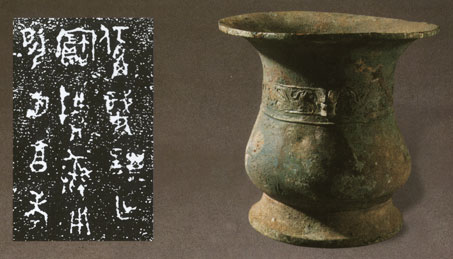
Pingdingshan Yingguomudi.
Dining Options
Local Cuisine
Pingdingshan is known for its rich culinary traditions, reflecting the flavors of Henan Province. While visiting Yingguomudi, don’t miss the chance to try:
- Steamed Buns (包子): These fluffy, filled buns are a staple in local dining. You can find various fillings, including pork, vegetables, and even sweet bean paste.
- Noodle Dishes (面条): Henan-style noodles are often hand-pulled and served in rich broth or stir-fried with seasonal vegetables and meat.
- Braised Lamb (羊肉): A regional favorite, braised lamb dishes are often seasoned with aromatic spices and herbs, providing a hearty meal after a day of exploration.
- Local Snacks (小吃): Street vendors offer a variety of snacks such as fried pastries and grilled skewers, perfect for a quick bite on the go.
Recommended Restaurants
1. Pingdingshan Old Town Noodle House: Known for its delicious hand-pulled noodles and warm atmosphere, this spot is perfect for a casual meal.
2. Henan Cuisine Restaurant: This eatery offers a variety of traditional dishes, showcasing the best of local flavors in a comfortable dining setting.
3. Street Food Stalls: For a more adventurous dining experience, try the food stalls near the local market, where you can sample a variety of quick bites at affordable prices.
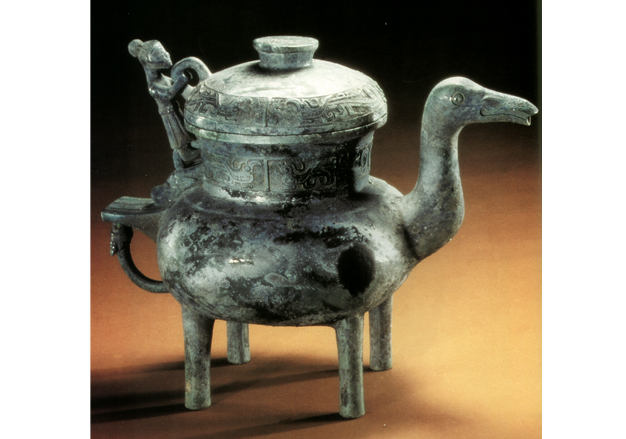
Pingdingshan Yingguomudi.
Accommodation
For a comfortable stay while visiting Yingguomudi, consider these nearby hotels and guesthouses:
- Pingdingshan International Hotel: A modern hotel offering comfortable rooms, a fitness center, and a restaurant serving both local and international cuisine. It’s an ideal choice for travelers seeking convenience and quality service.
- GreenTree Inn Pingdingshan Xinhua District: This budget-friendly option provides clean and comfortable accommodations with essential amenities, perfect for those looking to explore the area on a budget.
- Local Guesthouses: For a more authentic experience, consider staying at one of the local guesthouses. They often offer a more personalized experience and the opportunity to connect with local families.
Tips for Travelers
- Seasonal Considerations: The best time to visit Pingdingshan, including Yingguomudi, is during the autumn months when the weather is pleasant, and local harvest festivals take place.
- Advance Booking: Particularly during peak tourist seasons, it’s wise to book accommodations in advance to secure the best rates and availability.
By enjoying the local cuisine and staying in comfortable accommodations, you can fully immerse yourself in the cultural richness of Pingdingshan while exploring the historical treasures of Yingguomudi.
Frequently Asked Questions
-
What is the historical significance of Pingdingshan Yingguomudi?
Pingdingshan Yingguomudi, or the Ying State Cemetery, is an important archaeological site that served as the burial ground for the nobility of the ancient Ying State during the Western Zhou Dynasty. The site has yielded thousands of artifacts, including bronze and jade items, which provide valuable insights into ancient burial customs and the sociopolitical structure of the time. -
Where is Yingguomudi located?
Yingguomudi is situated on Taiyang Ridge in Beituo Village, Xuezhang Township, Pingdingshan City, Henan Province, China. It is easily accessible from the city center and is located near the banks of the Ying River and Bai Gui Lake. -
What are the opening hours for Yingguomudi?
The site is open daily from 7:30 AM to 6:00 PM. Visitors are advised to plan their visit accordingly to ensure they have enough time to explore the site. -
How much time should I allocate for my visit?
It is recommended to spend about 1 to 2 hours at Yingguomudi to fully appreciate the site’s historical context and the artifacts on display. -
Are there guided tours available at Yingguomudi?
Yes, guided tours are often available. These tours can provide in-depth information about the site’s history, the artifacts discovered, and their cultural significance. It’s advisable to check in advance for tour availability and schedules. -
What types of artifacts can be found at Yingguomudi?
The cemetery has uncovered thousands of artifacts, predominantly bronze and jade items. Many of these artifacts feature inscriptions that relate to ancient rituals and ceremonies, offering valuable insights into the cultural practices of the time. -
Is there an entry fee to visit Yingguomudi?
While specific details on entry fees may vary, it is advisable to check the latest information online or contact local tourism offices before your visit to confirm any costs associated with entry. -
What nearby attractions can I visit after Yingguomudi?
After exploring Yingguomudi, visitors can take a short trip to nearby attractions such as the Bai Gui Lake National Wetland Park, Pingdingshan Museum, and Xiangshan Pumen Zen Temple, all of which offer unique experiences and insights into local culture and nature.
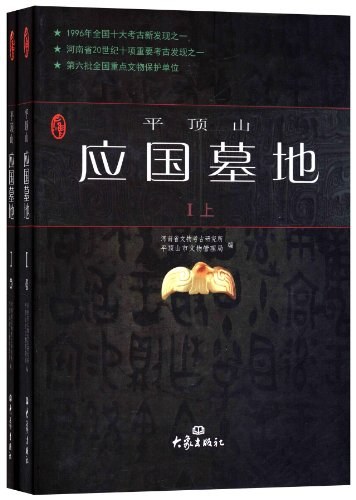
Pingdingshan Yingguomudi.
Final Thoughts on Your Trip
Visiting Pingdingshan Yingguomudi offers a profound glimpse into China’s ancient past, inviting travelers to explore the rich tapestry of history woven through its archaeological wonders. This site, which served as the burial ground for the aristocracy of the Ying State during the Zhou Dynasty, is not just a resting place for the dead, but a vibrant testament to the cultural and ceremonial practices of a bygone era. With its meticulously arranged tombs and thousands of invaluable artifacts, including exquisite bronze and jade items, Yingguomudi stands as a significant landmark for those interested in ancient civilizations.
As you wander through this historical landscape, take a moment to reflect on the lives of those who once roamed these lands. The stories embedded within the relics and inscriptions offer insights into the traditions, values, and social structures of ancient China. Whether you are an avid history enthusiast or a casual traveler, the experience at Yingguomudi is sure to enrich your understanding of the region’s heritage.
In conclusion, a visit to Pingdingshan Yingguomudi is not merely an exploration of tombs and artifacts, but an invitation to connect with the echoes of history that continue to resonate through time. Embrace the opportunity to walk in the footsteps of the ancients and allow their stories to inspire your journey.
